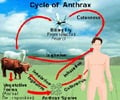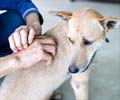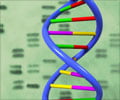The increasingly violent animal rights attacks and the need for an educated public and engaged research community to ensure the safety of animals and researchers
The increasingly violent animal rights attacks and the need for an educated public and engaged research community to ensure the safety of animals and researchers, as well as the continuation of health advances are highlighted in two new expert commentaries released in the September 16 issue of The Journal of Neuroscience.
The commentaries, written by Jeffery H. Kordower, and by Dario L. Ringach and J. David Jentsch, outline the strong efforts by The Society for Neuroscience (SfN) and the research community to ensure humane and responsible animal research. The commentaries also emphasize the need for broader reforms and public engagement."Responsible animal research has played a vital role in nearly every major medical advance of the last century, from heart disease to polio, and is essential for future advances as well," said SfN President Thomas J. Carew. "Today, it is unacceptable that in the pursuit of better health and understanding of disease, researchers, their families, and their communities face violence and intimidation by extremists."
Referencing the commentaries and researchers who have seen their "cars and homes firebombed or flooded, and [who] received letters packed with poisoned razors and death threats," Carew continued to say that "these threats do not endanger just these individuals alone, but also the scientific community at large and the health and well-being of millions affected by their research. SfN is committed to the responsible and ethical use of animals in research, and these harmful acts should be vigorously prosecuted."
The responsible use of animals in research is indispensable for sustaining the dramatic progress seen in diagnosing and treating many crippling conditions that affect millions of Americans, such as Alzheimer's disease, paralysis, Parkinson's disease, addiction, and depression.
SfN is committed to animal research advocacy through:
- Supporting responsible use of animals in research
- Tracking legislation, as well as judicial and regulatory decisions, that make an impact on members' research progress
- Supporting scientists under attack by groups attempting to end use of animals in research
- Educating the public about the responsible use of animal research to advance science and improve health
Advertisement
RAS










